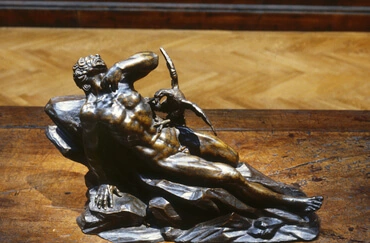Apocalypse Revealed #789
789. "'In which all who had ships on the sea were made rich by her wealth!' because in one hour they were destroyed." This symbolically means, because by the sanctities of the Roman Catholic religion they all gained absolution, as many as were willing to purchase it, and instead of worldly and temporal riches they received spiritual and eternal ones, and now no one did.
To be made rich by her wealth means, symbolically, to gain absolution before God by the sanctities of the Roman Catholic religion, or to believe that in exchange for their temporal and temporary merchandise or riches, they receive spiritual and eternal merchandise or riches; or in other words, that in exchange for gold, silver, precious stones, pearls, purple, and all the other valuables enumerated in verses 12 and 13, they gain blessings and felicities after death. These are what are meant by the wealth of that city by which they say they were made rich. This is also the way they speak, as people know. Because in one hour they were destroyed, means symbolically that because of the destruction of that religion, no one could buy their sanctities after that. It is apparent from this that these words have the symbolical meaning stated above.
That the sanctities of the church are meant by things of value is apparent from the following passages:
Blessed of Jehovah is (Joseph's) land, with the precious things of heaven..., with the precious fruits of the sun, with the precious produce of the months..., with the precious things of the ancient hills, with the precious things of the earth... (Deuteronomy 33:13-16)
...Ephraim a precious son to Me, a delightful son... (Jeremiah 31:20)
An understanding of the Word is meant by Ephraim.
The precious sons of Zion were valued more than fine gold... (Lamentations 4:2)
The sons of Zion are the church's truths. And so on elsewhere, as in Isaiah 13:12; 43:4; Psalms 36:7; 45:9; 49:8; 116:15.
That, now, is why we are told that all those of that city who had ships on the sea were made rich by her wealth.
Cry

As with most common verbs, the spiritual meaning of “crying” or “crying out” (meaning a shout or wail, not weeping) is highly dependent on context. Who is crying out? To whom? Why? In most cases, though, crying has to do with speaking falsely, and of the emotions arising from the conflict between truth and falsity. When people cry out in distress it is most often an indication that they are being overwhelmed by false ideas. In other cases – especially regarding more joyful cries – it is a celebration of the triumph of truth.






